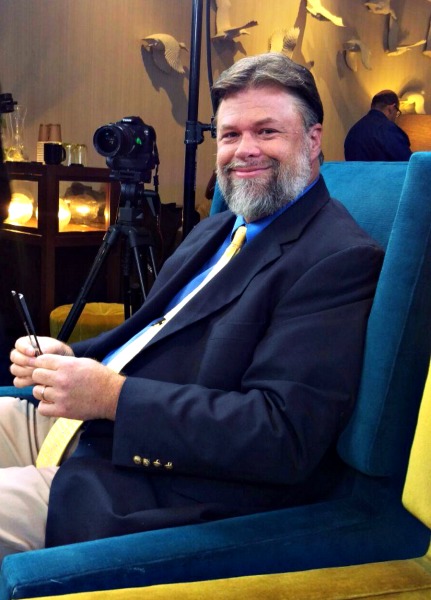Posts Tagged ‘journey’
Have A Positive Life Through Mindful Imagination
As I’ve grown older I realize that I’m not as creative as I was as a child. Whether that’s actually true or just my perception, it’s my current reality. Children have a sense of wonder about them, partly because many of their life experiences are new to them. I watch the reaction on the face of my granddaughter, not yet a year old, and I see the wonder and amazement as she experiences the word around her for the first time. I don’t remember ever being that age, but I do remember that as a child my imagination and creativity were awesome!
As children, we imagine ourselves as being any occupation, and even some made up super human people saving the world. Our desire to experience the world in all its fullness, and add to it, seem to wane in many of us as we age. I think the education system is partly to blame, but, realistically, I blame the economy. Why? Most of us need to find employment to survive, and many of the jobs are routine and mundane. Rare are those who gain employment wherein imagination is necessary. The rest of us simply live out our lives, as happy and content as possible. Yet lacking in imagination.
Imagination guides us toward our hopes, keeping us enthused and passionate about life. Imagination leads to discovery and understanding. Imagination, when grounded in reality and sprinkled with an appropriate amount of dreams, guides us along the path of possibilities. Imagination is what separates us as humans from the rest of the animal world. We have the ability to think and feel beyond and outside of our reality. We have formed societies on the imagination of national borders, religions, and money; none of which exist but for our imagination. We place importance and value on gold rocks and shiny gems, but the reality is that their value only lies in our imagination. How is this any different from a child placing value on a random object?
Bonus: Chris Shea is offering this free GIFT explaining how you can improve your life with life coaching! Click here to get it
Mindfulness, focusing one’s awareness on the present moment, while calmly acknowledging and accepting one’s feelings, thoughts, and bodily sensations, enables us to be rooted in the present moment. Children live in the present moment, focused on what they now feel and in what they are now doing. In a positive way, we can learn from the example of the child who is so focused on the present that they notice the wonders of the world which pass us by in our hurried lives. What child doesn’t stop to watch the ant or to play with the spider, all the while the adult is yelling at them for taking too long to get something done.
In that moment when the child is watching the bug they are also imagining what that bug’s life is like. Where does it live, does it have a family, is it playing or working? The child uses their imagination to learn more deeply about the world around them. Do we?
Understanding and believing that my current reality does not always need to be my reality, imagination blossoms into hope. Mindfulness allows us the understanding that we can’t change our past, but we can learn from the past to help us prepare for the future. Our current reality, our current situation in life, does not need to be our reality in the future. The only way that I’m going to see a different future is to imagine a different reality. My imagination is capable of becoming my reality.
Who I am has a lot to do with my imagination. Ask yourself these questions:
- As a child, how did I imagine myself and my world?
- As an adult, how have those images and dreams changed?
- What are the common themes?
- What, practically, can I do to make my dreams a reality?
Don’t let adulthood stop you from imagining, dreaming, or having a sense of wonder! Experience your reality in all of it’s wonderment, and imagine a future of hope, possibilities, and peace! Children do.
{loadmodule mod_custom,continue the conversation here or on social media}
Taking Time For Me Is Important And Possible
Taking care of oneself is key to finding inner peace, yet most of us don’t take the time to care for ourselves. Why is this? Most of us would probably respond that we don’t have the time, or that we feel selfish if we were to do things for yourself. Many of us put others’ needs ahead of our own, which is noble, but who is caring for you? If you are the one caring for others, who is the one caring for you?
Why is self care so important? What if I were to tell you that the “answer” to finding happiness and inner peace is spending time daily in self-care? It’s true, and that’s why self care is so important. We all have valid demands for our time, but the reasons we use to not care for ourselves are also excuses.
If we are being brutally honest with ourselves we would admit that we make time for what is valuable to us. Honestly, many of us simply don’t value self-care as much as we say we do. I talk about the importance of attending the gym, but I don’t attend since I “dont have the time.” But, take today for example, I could have woke up a bit earlier, moved some appointments around, done some of what I did this morning last night instead, etc. The reality is, the gym, although I know it’s important, is not of value to me at this time.
I’m proposing that we get creative with our daily schedule so that we can fit in self care. How do we do this?
- Evaluate what is valuable to you.
- Review your daily schedule in light of step 1 above.
- Redo your daily schedule to “create” the time for yourself.
- Tell another person of your plan so that you have support and encouragement.
- Do this every day.
Now that self care is of value and we have found a space for it on our daily schedule, let’s talk concretely about what we can do with our new-found time. Many of my clients share that even if they had the time for self care, they wouldn’t know what to do with that time. Sound familiar?
Since we convince ourselves that we don’t have the time for self care, many of us don’t think about what we would do if we did have the time. As you consider what you can do for self care, think small. You don’t have to do something big as anything you do toward self care will work.
Here are some of the things that I do for self care:
- I take a 10 or 20 minute “power” nap most afternoons to recharge and to slow down.
- I read a few pages from a fiction or nonfiction book, or a spiritual publication to gain insight.
- I take a meditative and mindful walk whether I’m at home in the fields and woods, or travelling in a major city.
- I make the time to meditate. If I don’t have the ability to sit in quiet, I will use the moments I do have, such while driving or walking.
- Finding hobbies which I enjoy and that stimulate me, and which have nothing to do with my everyday profession (the later statement is most important).
I know of many people, myself included, who follow these steps but then feel guilty for taking the time for themselves. We need to re-frame that guilt feeling and change our perspective on the importance of self care. When you truly value the importance of self care, the feeling of guilt will go away. Since you now believe in the necessity of self care, there is no reason for guilt. I learned the importance and the value of self care on a flight out west.
Prior to take off, the flight attendants give their safety briefing; how to fasten the seat belt, how the seat transforms into a flotation device suitable for the ocean, and what to do if you lose cabin pressure. I, like most frequent travellers, tune out the briefing. But, on this flight, for no particular reason, the instructions on using the face mask was significant to me. The flight attendant stated something to the effect that if you are travelling with small children, first secure your mask before assisting your child. No way!! How am I supposed to be ok with giving myself life saving oxygen while my child struggles to breathe? Not happening!
But then I had an aha moment. If the masks drop from the ceiling most of the passengers, especially the children, will be upset. It may be a struggle to secure their mask in the frenzy of the moment, and the odds of getting it right the first time is slim as I’m sure I too would be scared and anxious. In the time that it takes to struggle with the child’s mask, what if I pass out? If I pass out prior to securing their mask, then we both are in trouble! I’m no assistance to my child. But, if I secure my mask first it won’t matter how long it takes to help my child since I’m now capable of breathing.
This safety briefing changed my perception on the importance of self care. If I am not capable of providing help, then no one gets help. Taking care of myself allows me the strength and insight to not only learn more deeply about myself, but also the ability to help others.
Self care is necessary, and the key, to finding my inner peace. The more I learn about myself the more capable I am of coming to terms with myself. This union of self is the inner peace we seek.
{loadmodule mod_custom,continue the conversation here or on social media}
How I Became Self-confident And Happy
The other day I was asked “Have you always been this self-confident? Do you ever doubt yourself?” I was somewhat taken aback by these questions as I don’t typically think of myself as confident. My current life activities consists of family, life coaching, counseling, writing, teaching at a university and college, hosting a podcast, giving lectures, and speaking at conferences. I keep myself active, but I enjoy all that I do. Is my enjoyment the self-confidence people see in me?
Self-confidence is defined as a feeling of trust in one’s abilities and talents, yet this definition presupposes that I have an awareness of my abilities and talents. I feel this is the reason why many people lack self-confidence; they don’t recognize their own abilities and therefore wrongly assume that they are unable, or incapable, of performing a task. Actually, I just described myself.
While growing up I was extremely shy and unaware if my abilities and talents. This lack of self-awareness, coupled with my avoidance of others, reinforced in me a belief that I wasn’t capable of much in the way of outward achievement. As a child, and even through my early adulthood, I enjoyed the solitary pursuits of reading, studying and writing. Sure, I had friends with whom I enjoyed doing things, but my friends were few and not among what was known as the ”in crowd”. For me and my insecurities and shyness, they were “safe”.
A lack of self-confidence is typically coupled with a person’s self-esteem, or sense of self-worth. In my experience, though, that assumption wasn’t true. Although I lacked insight into my gifts and talents, I did feel positive about myself. I enjoyed my hobbies and the people I chose to be close to; life was good. My sense of self-worth was high, while at the same time my self-confidence was low.
How can this be? In my early life it meant that I did well in school, but if I were given a task of importance to complete, or asked to give a speech, my mind would immediately jump to the thought “Me?! I don’t have the skill to do this? There have to be people better at this than me!” At the time I failed to realize that I was asked because someone else saw the talent and ability in me. I failed to take into account the perspective of the asker because I failed to recognize my own giftedness. If I couldn’t see it in myself, I was never going to accept that someone else saw what I myself could not.
So, what changed in me, given my history of lack of self-confidence and shyness, that now I am able to speak to large crowds, teach university classes, and train groups of peers? There’s no one event or “aha moment” which made all the difference. For me, it was a progressive shift, through meditation, where I became more self-aware of my giftedness as well as my weaknesses. It is in accepting both aspects of myself that I feel have been the most transformative.
Here are some reflections I have learned in my adult years which have impacted my ability to be self-confident:
- I’m not responsible for other’s happiness. I am responsible for my feelings and my actions toward others. This helps my self-confidence in that I don’t seek nor need the approval of others to know that I am good at what I do. The constructive opinions of family and close friends I respect, but needing to be liked by everyone is no longer a goal of mine.
- Not knowing is ok. Early in my career I stifled myself in that I felt that if I didn’t know everything there was to know in my field, than I was a fraud. I now recognize how wrong I was, but it was in me eventually realizing that even the “experts” in my field didn’t know everything for me to gain confidence in my own knowledge and experience of my field. What I don’t know, I will learn from others and so continue to grow.
- I became empowered in my self-confidence every time I stepped out of my comfort zone only to realize that I did well. The more times I gave something a try and ended with positive results, the more I became confident in my abilities. Yes, those times when it didn’t go well seemed to set me back more than the positive times moved me forward; but regardless, I kept on keeping on. I’m not perfect when it comes to public speaking or teaching, etc, but I do my best, and more times than not there is positive feedback from the audience. Had I not moved out of my comfort zone, my self-confidence would still be quite low.
- As I mentioned above, self-confidence is not to be equated with always being right or knowing everything. Self-confidence grows from an understanding of who you are, the positives and negatives. We all have growth opportunities, so don’t let the fact that you are not “perfect” stop you from feeling self-confident. Feel self-confident knowing that you are both talented and flawed; perfect in some aspects yet need to grow in others.
- Take time for yourself. Self-care is vitally important to physical and mental health. Spending time nurturing yourself and meditating provides you the opportunity to know yourself better. In this self-knowledge you will find your confidence and your growth opportunities. Work on both!
In my continuing journey of self-confidence, I realize that I don’t need to be perfect in all knowledge or skill, but I do need to be self-reflective with a willingness to grow. Take the time to learn about yourself, then step out of your comfort zone and give it try! If it works well, wonderful, do it again! If it doesn’t work well, wonderful, learn from it then do it again!
{loadmodule mod_custom,continue the conversation here or on social media}
Home
Yes! You can improve yourself & your business!
ONLINE video sessions available! 



…. a thought from Chris Shea:

My goal, and the mission of “Lifesjourney”, is to guide us toward finding self-awareness and inner peace. I encourage us to view our lives from varied perspectives trying to find what daily practices strengthen us along our journey.
Lifesjourney’s philosophy for finding inner peace lies in two basic concepts: keeping our thoughts on the present moment, and practicing some form of daily meditation.
“Mindfulness” is a word I often use in my writings, on my social media, and a concept I use with my clients. One of the pioneers in the mindfulness movement, Jon Kabat-Zinn, defines mindfulness as:
“a means of paying attention in a particular way; on purpose, in the present moment, and nonjudgmentally.”
Personally, the two key phrases in this definition which I feel are important are “on purpose” and “nonjudgmentally”. To find our inner-peace we need to consciously make the choice to spend time every day focusing our attention on what is happening around us and within us. Our focus is not meant to judge what is happening, just to notice it. As we become aware of our surroundings and our inner self, we will become aware of life’s joys and potential. In our state of focused awareness, we are enabled to see solutions; to see hope. 
Lifesjourney main office for coaching & counseling …
NEWS
–Now accepting new clients!! Check out our services & book online (or call the office)
–New & Improved website coming soon!
— View live episodes of Chris Shea & his guests on Firetalk ! Click here
Multimedia




![]()
“Life is sometimes difficult, but even so, it is always possible to find inner-peace. I talk about topics of daily life which cause us stress and anxiety, guiding us on how to change our perspective and to learn how to live in the moment.” -Chris Shea, host of “On Finding Peace”
—————————————————————————–


 Ms. Amanda LePore
Ms. Amanda LePore
The “voice” of Lifesjourney & On Finding Peace is Ms. Amanda LePore. Check out her work by clicking her photo
Calendar of Events
If you wish to book Chris for a conference, seminar or training, email our office: booking@lifesjourneyblog.com or call: 301-850-2177
Upcoming Scheduled Events
— October 4 @ 8:00pm EDT: Live talk with myself and my guest, Ben Rolnik. Topic: “Can Suffering Cease to Exist? Here’s How”. Click here: https://goo.gl/Yl6pUF
— October 7-11, 2016: I’m attending the NAADAC annual conference in Minneapolis, MN. Details click here
— October 16 @ 8:00pm EDT: Live talk with myself and co-host, Lisa DeLay. Topic: “Practical Strategies for Coping With Anxiety”. Click here: https://goo.gl/BjI45K
Life Improvement Blog
This is where Lifesjourney began; as a blog.
Counseling (2)
Are you feeling depressed or anxious most of the time? Perhaps you’re unsure about how to cope with recent life changes like a divorce, the death of a parent, loss of a job or major illness?
Maybe you’ve been diagnosed with a mental illness and wish to talk to someone about dealing with your illness. If these, or other issues, are of concern, then counseling is for you.
I have been working with clients in a clinical setting for over 20 years. My approach to counseling is based on the Cognitive Behavioral Therapy model, proven to be the most effective at helping eliminate troublesome life issues.
As part of the process, I will help you identify the thoughts and behaviors that are healthy vs. unhealthy for daily living and transform those behaviors into healthier, more realistic ways of dealing with life.
As appropriate, handouts, readings, and worksheets will be assigned to assist in the process. In my sessions, I use various techniques to really educate and guide you towards better habits of thinking and acting in healthier ways.
If you’re ready to explore life coaching and how it can help improve your life, please reach out. You can email me at booking@lifesjourneyblog.com or call directly 240-587-7854.
Contact Chris Shea For Life Coaching In Leonardtown Or For Keynote Presentations
General information: info@lifesjourneyblog.com
Booking information: booking@lifesjourneyblog.com
Phone
Office: 301-850-2177
Mailing Address
PO Box 87
Leonardtown, MD 20650
Contact Form
{BreezingForms:contact}
Social Media









